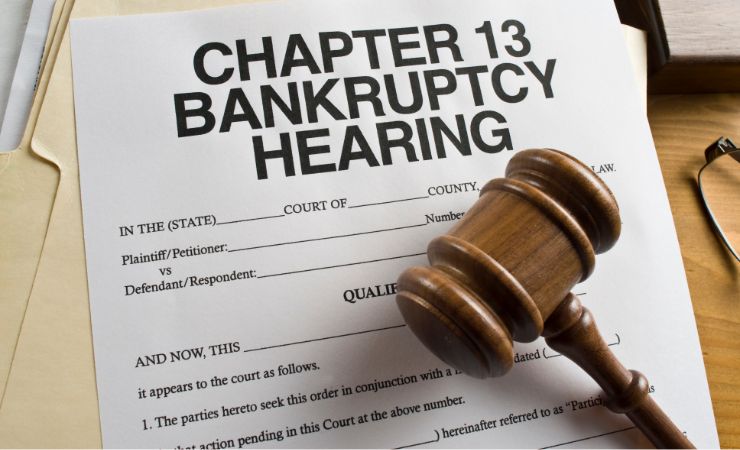When tackling overwhelming debt, filing for Chapter 13 bankruptcy in Texas may seem like a viable solution. It can provide much-needed relief from financial stress and the threat of losing your home or car. However, it is crucial to fully understand the potential losses and consequences of this legal process.
First, you may be required to surrender some of your assets to pay off your creditors. While Chapter 13 allows you to keep your essential assets, such as your primary residence and your car, luxury items like a second home, boat, or expensive jewelry may be liquidated to repay your debts. It will be difficult, but it will be necessary to achieve a fresh start.
Another significant loss associated with Chapter 13 bankruptcy is the hit to your credit score. No one wants to see their credit score plummet. Nevertheless, bankruptcy will significantly impact your credit score and can make it difficult to obtain credit in the future. However, it is important to remember that your credit score will gradually improve as you make your payments and complete the repayment plan.
Another aspect to consider is the potential impact on your employment. It is illegal for employers to discriminate against you based on your bankruptcy filing. However, some employers may be hesitant to hire someone who has filed for bankruptcy. It may also be more challenging to obtain a loan or a mortgage in the future.
Filing for Chapter 13 bankruptcy means your private financial information will become part of the public record. Anyone can access the information, and this can be particularly damaging if you have a business or a professional reputation that you want to maintain. It is a small price to pay for the benefits of the bankruptcy process, but something to keep in mind.
Additionally, certain debts, such as taxes, student loans, and child support, are generally not dischargeable in Chapter 13 bankruptcy. You will still be responsible for paying them off, even after filing for bankruptcy.
It is essential to remember that filing for Chapter 13 bankruptcy should be considered a last resort. Before making any decisions, it is wise to explore alternative options such as debt consolidation, credit counseling, or debt management plans.

Perhaps the most important step in making the most of your bankruptcy journey is consulting with an experienced bankruptcy attorney. They can guide you toward the best course of action for your specific situation. An expert attorney can help you understand the potential losses and consequences associated with Chapter 13 bankruptcy in Texas. They can also help you weigh the pros and cons of bankruptcy and its impact on your credit score.
Filing for Chapter 13 bankruptcy in Texas can provide much-needed relief from overwhelming debt and prevent foreclosure and repossession of your assets. It is important to remember, though, that this legal process also comes with potential losses and consequences. These should be fully understood and considered before making a decision. Nevertheless, with the right guidance and a plan in place, you can emerge from the bankruptcy process with a renewed sense of hope and a fresh start.
A: It depends on your financial situation and debt load. Chapter 13 is an excellent option for those facing foreclosure or repossession of their assets but who have a regular income and want to keep their assets. It allows for a repayment plan over three to five years, which can help you catch up on missed payments and pay off debts over time. However, keep in mind that Chapter 13 can significantly impact your credit score. It is always advisable to consult with a bankruptcy attorney or financial advisor to determine if Chapter 13 is the right decision for you.
A: When you file for Chapter 13 bankruptcy, an automatic stay goes into effect. This court order prohibits creditors from taking any further collection actions against you, including seizing your bank account. However, your bank account will be subject to review by the court-appointed trustee. A portion of the funds in your account may be used to pay off your creditors as part of your repayment plan. Consult with a bankruptcy attorney to learn more about the details of the process and how it affects your bank account.
A: If you have co-signed loans, filing for Chapter 13 bankruptcy will not absolve you of your responsibility to repay the loan. Your co-signer will still be responsible for paying off the loan if you cannot do so. However, if the loan is included in your repayment plan, the creditor will be required to accept the plan's terms and may not take legal action against your co-signer during the plan. It is imperative to consult with a bankruptcy attorney to understand the impact of co-signed loans on your Chapter 13 case.
A: It depends on the terms of your repayment plan and the court's approval. In most cases, the court will require you to obtain permission before incurring new debt, including using credit cards. However, you may be able to continue using your credit card for essential expenses if it is approved by the court and included in your repayment plan. It is vital to consult with a bankruptcy attorney. They can help you understand the specific requirements and restrictions on using credit cards in Chapter 13.
Our experienced bankruptcy lawyers at Steele Law Firm can help you understand the potential losses and consequences of Chapter 13 bankruptcy in Texas. We can also help you weigh the pros and cons of filing for bankruptcy and guide you through every step to ensure that your rights and assets are protected. Contact us today to schedule a consultation and learn more about the benefits of filing for Chapter 13. We look forward to helping you get on the path to financial freedom.




